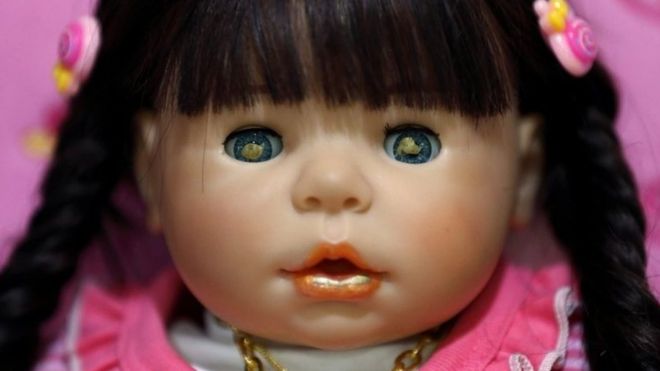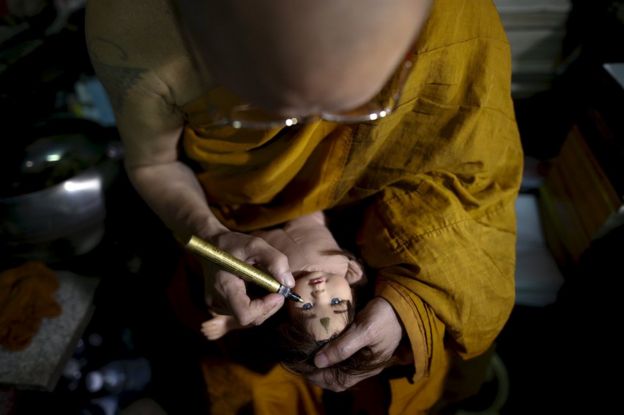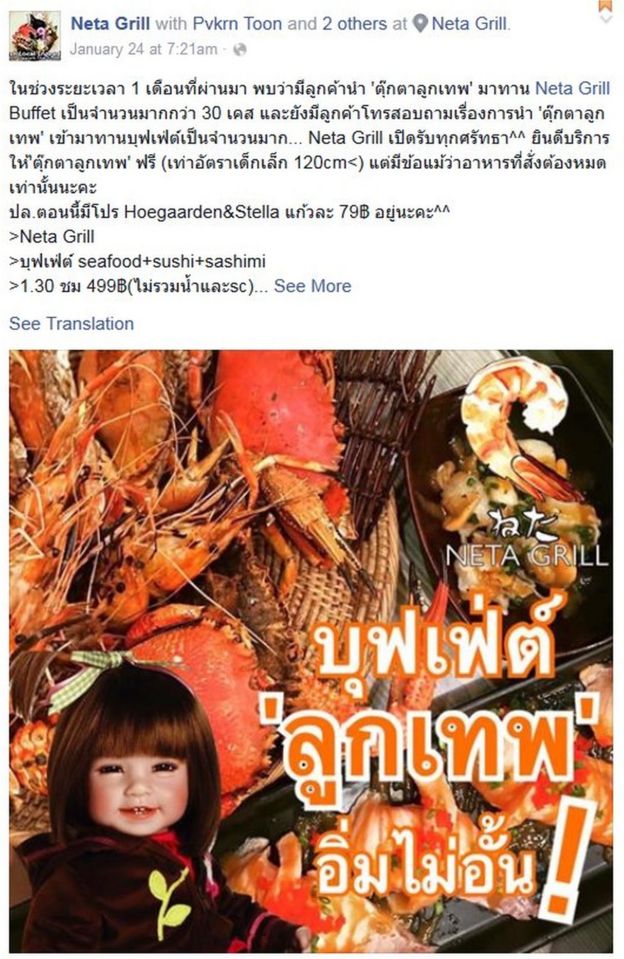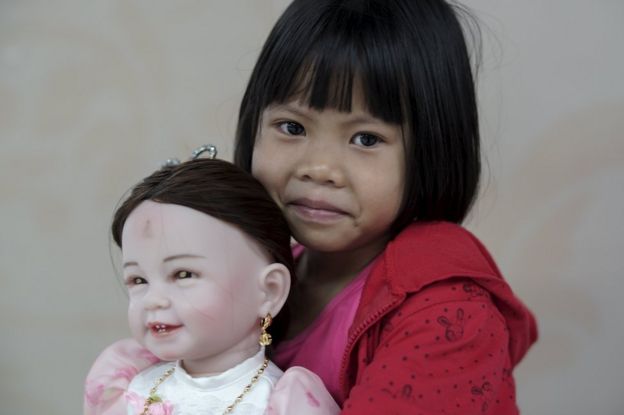
A craze for eerily lifelike supernatural dolls has swept Thailand in recent months.
Their name, "luk thep", literally translates as "child angels" and people believe they bring good fortune and they are pampered by their owners as if they were children.
But the privileges lavished upon them have also drawn a backlash and warnings from Thai authorities.
They get blessings from Buddhist monks
After purchasing a doll, the owner brings it to a monk who conducts a prayer and an anointing ceremony known as "plook sek".
Such prayers are normally used to bless lucky amulets, which are also popular in Thailand, where ancient beliefs in magic are still prevalent.
In the case of "luk thep", it is often seen as a way of animating the doll, where a wandering spirit is invited to inhabit it and give it a soul.

They can get airline seats - sort of
Thai Smile Airways made news this week when it said passengers could purchase tickets for the dolls who would get their own seats, snacks and drinks. But officials have since stepped in:
"Based on international aviation rules, passengers are people. So airlines aren't allowed to sell tickets for dolls," a spokesman for the Civil Aviation Authority of Thailand was quoted as saying in The Bangkok Post.
Passengers can buy a second seat under their names and place their "luk theps" there, he added.
They get to eat in fancy restaurants
At least one eatery in Bangkok has cashed in on the trend. Neta Grill said earlier this week it is offering meals for "luk theps" at child rates, adding that the restaurant is "open to all worshippers".

They get love and affection - and sometimes bling
Several owners told BBC Thai that the doll was more than just a talisman, they treat them like their own children.
"My daughter wants a sister and friend. In her school, her friends also have luk thep... so my daughter wants to have one like other people," one buyer said.

Doting owners have been known to splash out on expensive accessories and jewellery for their dolls.
Anthropologist Asama Mungkornchai from Pattani's Prince of Songkla University said the dolls appear to be particularly popular with middle-class women, and could "fulfill the need for motherhood" among such owners.
But the fact that many say they need it for good luck and wealth also highlights "a current sense of insecurity among the Thai middle class, especially when it comes to the economy", she added.
But there are critics
On Monday, Prime Minister Prayuth Chan-ocha urged Thais not to get carried away with the trend and not to buy the dolls if they cannot afford them, reported broadcaster Thai PBS.
The price of a doll can range from 1,500 baht (£29, $42) to tens of thousands of baht.
The police have also expressed concern that doll sellers have been evading import taxes, and that the dolls could be used to smuggle drugs if they were allowed on planes.
Earlier this week, police in Chiang Mai intercepted a doll loaded with 200 tablets of the popular recreational drug "yaba".
Even religious questions have been raised about the appropriateness of conducting Buddhist rituals on the dolls. The trend has sparked a backlash online, with some criticising owners as being superstitious.
But the National Office of Buddhism told Thai PBS the "plook sek" ritual was no different from blessings given by monks for other objects such as cars, a practice that is already widely accepted.
Pra Acharn Winai Thitapanyo, a monk at Bua Kwan temple which is known for its doll blessings, told BBC Thai: "As it does not violate our monkhood discipline, monk can recite incantations to please people."



No comments:
Post a Comment